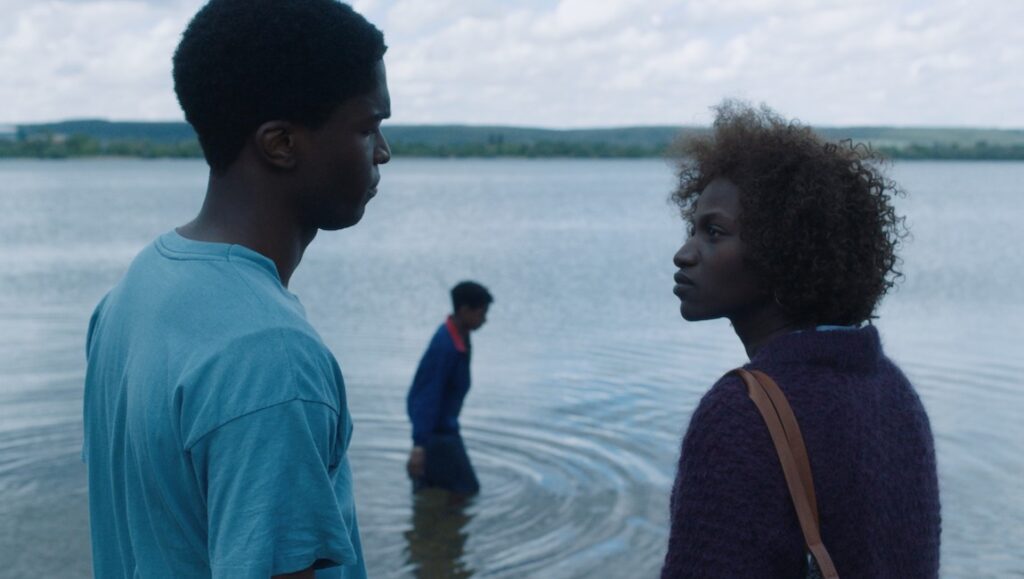Léonor Serraille’s Mother and Son is the sort of coming-of-age film that aims to capture life in both small and broad strokes. With a three-part structure that spans a couple decades, Serraille centers each section of the film on a different member of a family — the spirited young mother Rose and her two sons Jean and Ernest — while simultaneously revealing the interconnectedness of their experiences. The film moves chronologically, beginning with the three moving from the Ivory Coast to France, and subsequently adjusting to life as new immigrants. Serraille wanted to make this film after hearing stories from her partner, who emigrated from Africa to France, and while one can see the good intentions throughout, the formulaic approach that often comes from secondhand storytelling is equally present.
Initially, there are maneuvers that establish this particular immigrant experience in a familiar but effective manner. We watch as Rose dances to soukous among family members, and how this jubilant music is contrasted with the regal European classical music that defines her time working. There’s a divide here that’s bolstered by her romantic pursuits: she’s told to date a Black man named Julius Caesar, but resists his come-ons. She opts to sleep with different white men instead, and there’s an underlying but obvious point being made here regarding a desire for comfort in this new place that’s tied up with ideas of personal freedom. “The French take themselves so seriously,” she exclaims at one point. She never feels fully at home.
As the film progresses, these themes become increasingly hamfisted, as if Serraille is trying to ensure that audiences are privy to how the internal worlds of her characters are linked. When the film moves to focusing on Jean, who at this point is a teenager, we watch as he becomes intimate with a white girl as a track from Lambarena’s Bach to Africa plays — its mixing of African music with the works of J.S. Bach is laughably on the nose. Serraille simply can’t help but connect her ideas across the film’s three parts in clumsily overt manners. Early in the film, we watch as Rose and her two sons paint each other’s faces and revel in their time together. But, unhappy with letting that scene live as its own sublime moment, Serraille references it later on when Jean is at a party dancing with the same face paint.
What’s upsetting about Mother and Son‘s constant desire for every action to have a point is that everything feels too labored. Attempts at capturing the family’s racist experiences are painfully executed, and in different ways. We watch a TV news anchor talk about Charles Pasqua, a politician who was largely known for his anti-immigration policies. “The right to enter France must be restricted,” we hear. It’s not insightful or substantive; it’s just a cheap way to get us into Jean’s mind. When the film focuses on Ernest — now an adult working as a philosophy teacher — he gets interrogated by police officers who call him “Mr. Obama.” Mother and Son takes the posture of a film that would slowly reveal intimate, profound complexities, but instead, it remains frustratingly, egregiously simple.
Published as part of Cannes Film Festival 2022 — Dispatch 6.


Comments are closed.